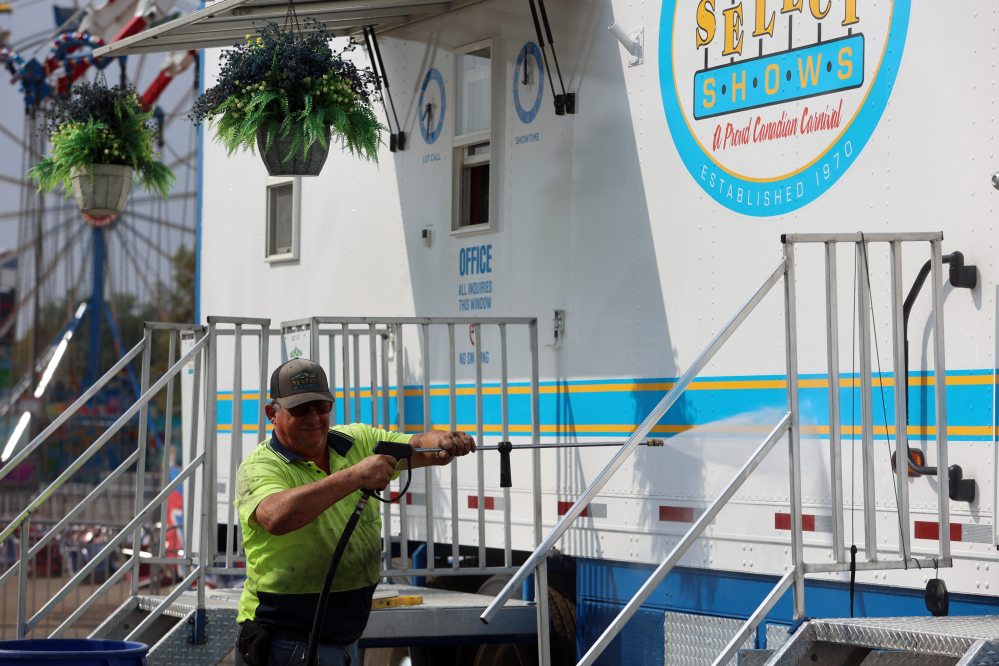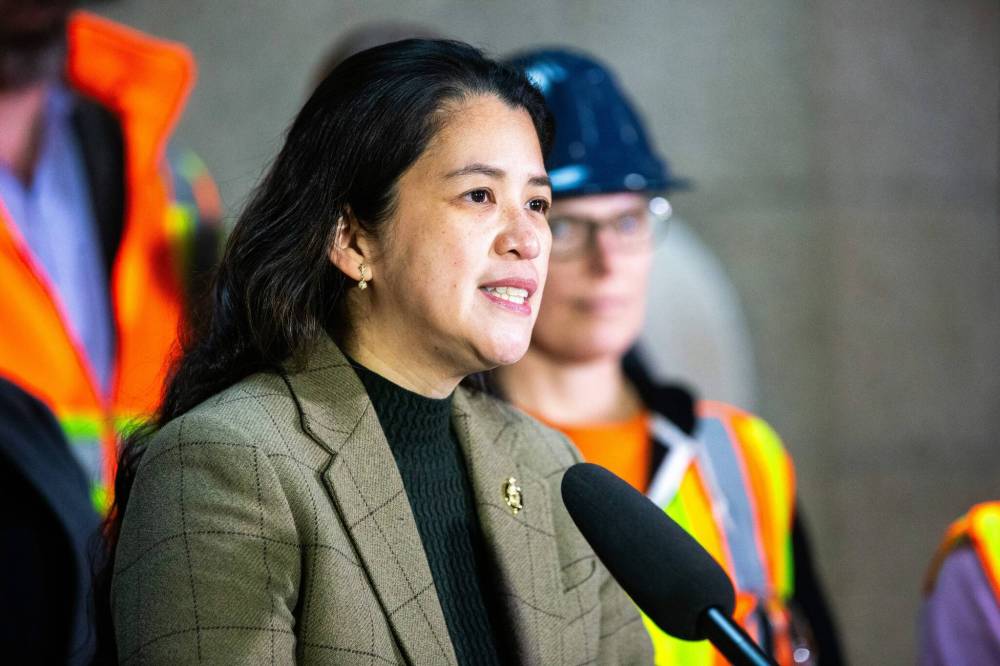Updated immigration targets worry employers
Advertisement
Read this article for free:
or
Already have an account? Log in here »
We need your support!
Local journalism needs your support!
As we navigate through unprecedented times, our journalists are working harder than ever to bring you the latest local updates to keep you safe and informed.
Now, more than ever, we need your support.
Starting at $15.99 plus taxes every four weeks you can access your Brandon Sun online and full access to all content as it appears on our website.
Subscribe Nowor call circulation directly at (204) 727-0527.
Your pledge helps to ensure we provide the news that matters most to your community!
To continue reading, please subscribe:
Add Brandon Sun access to your Free Press subscription for only an additional
$1 for the first 4 weeks*
*Your next subscription payment will increase by $1.00 and you will be charged $20.00 plus GST for four weeks. After four weeks, your payment will increase to $24.00 plus GST every four weeks.
Read unlimited articles for free today:
or
Already have an account? Log in here »
Hey there, time traveller!
This article was published 15/11/2024 (376 days ago), so information in it may no longer be current.
Employers are bracing for potential challenges as Ottawa’s latest immigration policy aims to slow population growth over the next three years.
In October, Immigration Minister Marc Miller announced the 2025–27 Immigration Levels Plan would focus on managing Canada’s population growth sustainably.
The announcement includes controlled targets for both temporary and permanent residents, a move expected to affect industries that rely heavily on foreign labour, such as pork processing and transportation.

Manitoba Pork Council general manager Cam Dahl told the Sun government should consider the labour demands in rural areas, which differ greatly from Canada’s largest urban centres.
“Policies that may be effective in Toronto, Montreal or Vancouver do not necessarily work for Neepawa, Brandon and rural Manitoba,” Dahl said in an interview. “The issues in those larger urban areas are very different from those we face here in Manitoba, so we believe the policy shouldn’t apply uniformly across all regions. We are advocating for flexibility in federal immigration policies that would allow Manitoba to maintain the Provincial Nominee Program’s current success.”
The policy, he said, would not only affect Maple Leaf in Brandon and HyLife in Neepawa because “new Canadians form a crucial part of our workforce,” starting at the barns, then through transport and on to processing, “they are essential to our operations at every stage, from production to processing.”
Dahl explained the industry is not heavily dependent on the Temporary Foreign Workers program because most of the new Canadians the companies bring in are employed full-time and on a pathway to citizenship.
“Most of the skilled workers coming to Manitoba’s pork industry do so through the Provincial Nominee Program, which has been very successful,” he said. “It ensures that new Canadians have not only jobs but also access to housing, services and community support. For example, new workers from the Philippines arriving in Neepawa can rely on an established community, which isn’t the case in other parts of Canada.”
He added that the council acknowledged the need to address some policy issues but urged the federal government to avoid reducing programs like the Provincial Nominee Program.
“Not all regions in Canada are the same, and we hope that rural areas like Manitoba are treated differently from Toronto, Montreal, or Vancouver. At this point, I’m cautiously optimistic that the program will remain intact.”
Regarding advocacy, Dahl said the council is actively engaging with both federal and provincial governments, adding the provincial government has shown “solid support for our position. We’ve yet to hear back directly from the federal minister, but we’re hopeful for a productive dialogue soon.”
While the federal government has indicated that it will protect certain aspects of the food industry from new restrictions on foreign workers, Maple Leaf Foods — a major employer in Brandon — remains cautious about how changes might still impact recruitment and retention efforts.
The company’s spokesperson told the Sun it is closely watching the government’s recent announcement to reduce immigration targets for the next three years.

“We are awaiting further details to determine how this will impact our operations,” the spokesperson said in an email. “Foreign workers play an important role in driving our success at Maple Leaf Foods.”
Maple Leaf Foods, which operates plants in both Brandon and Winnipeg, noted that a new federal directive to reduce work permit validity will impact its workers.
“Plans to reduce work permit validity from two years to one will impact workers’ ability to apply for permanent residency, in turn impacting our retention strategies and recruitment efforts,” it said. “The food industry — including Maple Leaf Foods — is in regular discussions with the federal government to highlight the importance of this sector and its workers to the Canadian economy and the food supply chain.”
Shorter permit periods may discourage potential applicants from seeking long-term employment in Canada, exacerbating existing workforce challenges in the pork industry, it added.
Jim Mills, president of Select Shows, a family-owned amusement ride company, said the restrictions will further worsen the labour scarcity across his industry.
“If they reduce foreign labour, it’s going to hurt us because we’ve been having a real tough time getting foreign people to work,” Mills told the Sun in an interview. “Right across all the amusement companies, we’re all facing a severe shortage of foreign labour, leading to operational difficulties for many businesses.”
Since the COVID-19 pandemic ended, he said, finding reliable domestic workers has become a serious challenge, with many former employees no longer willing to work.
Like others in the sector, he added, Select Shows had previously relied largely on Canadian workers but had to strategize in the past few years and looked to foreign labour as a solution.
Finding foreign labour has been a major hurdle, he said, adding his company joined a program to bring in at least 10 workers from Mexico next year, following the example of larger companies in the industry that have long employed foreign workers from countries like Jamaica and South Africa.
Select Shows operates rides at fairs throughout Manitoba and Ontario.

Provincial Labour Minister Malaya Marcelino has announced a new program intended to bring labour to rural areas. (File)
He acknowledged the importance of Canadian labour, but said “the reality is that many younger people” are no longer interested in the kind of work his company offers. He reminisced about past years when rural youth, often from farming families, would take on summer jobs with Select Shows.
Labour and Immigration Minister Malaya Marcelino agreed with Dahl that Manitoba’s needs differ significantly from those in Ontario, British Columbia, and Quebec.
“Implementing a one-size-fits-all federal policy across Canada doesn’t make any sense,” she told the Sun on Thursday. “We’ve been advocating strongly for Manitoba’s needs and making it clear to the federal minister that this approach won’t work for us. It could hold back our growth. We know what we need — and this is not it.”
Marcelino reiterated that Manitoba would “continue to advocate” for a higher federal allocation of newcomers to meet ongoing labour demands in the province.
» aodutola@brandonsun.com
» X: @AbiolaOdutola
